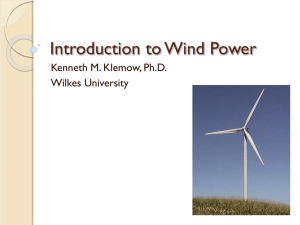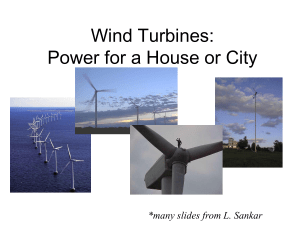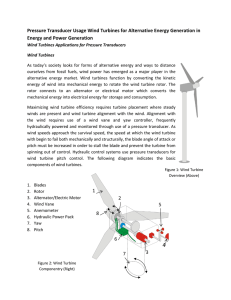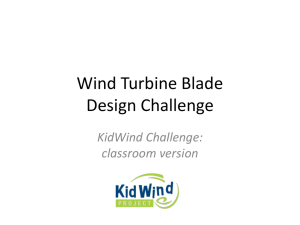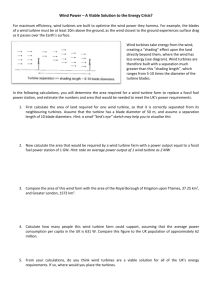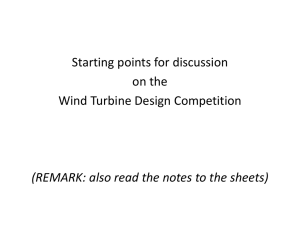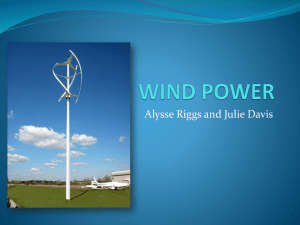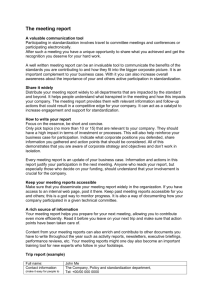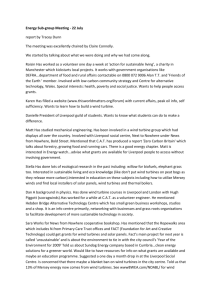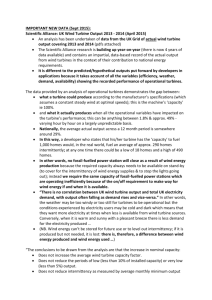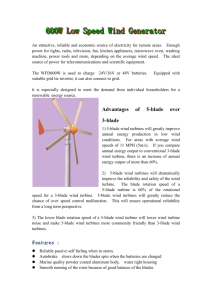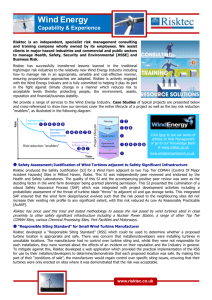Choice method of hydraulic turbines
advertisement
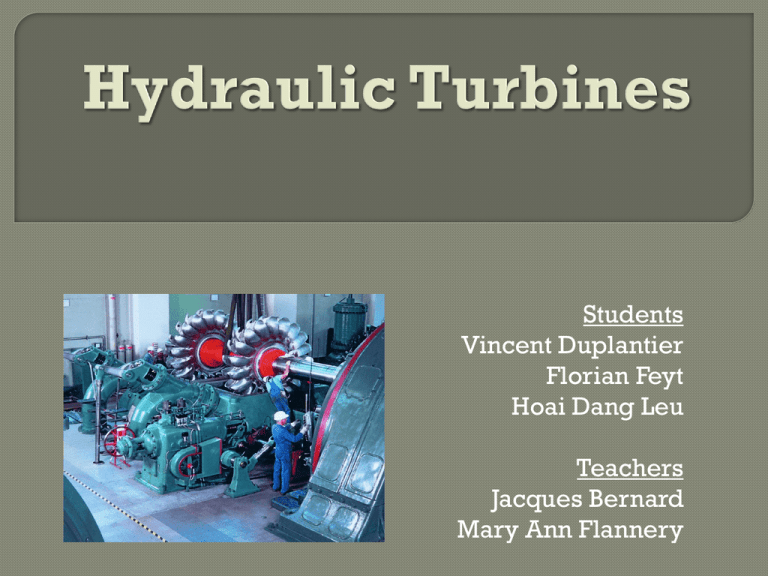
Students Vincent Duplantier Florian Feyt Hoai Dang Leu Teachers Jacques Bernard Mary Ann Flannery I. Presentation of Hydraulic Turbines Hydraulic turbines overview 2. Hydroelectric plant installation 3. Three types of Hydraulic Turbines 1. II. Choice method of Hydraulic Turbines Conclusion 2 3 Hydraulic turbines : liquid turns blades to produce rotation Potential/Kinetic power -> Mechanical Power -> Electric power Hydroelectricity • Advantages : Clean and Renewable • Disadvantages : damage of ecosystem, loss of land 4 Components of a Turbine : Runner : rotational part (Shaft + blades) Diffuser (at output) : channelshaped increasing in size Distributor : optional component at the input that controls the angle of attack 5 Flow: small head, high velocity (river) Flow: great head (in reservoir) 6 Action turbine No diffuser High operating head The wheel is not submerged The number of opened nozzle changes the power 7 8 Reaction turbine Change of the flow pressure Operating head between 20 and 500 meters Two main components: upstream guide vanne and runner 9 10 Evolution turbine of the Francis The guidvanes and runner adapted to the waterflow High efficiency for a wide range of water flow Can be used as a pump for Storage pumping 11 12 13 14 Magnet • 2 poles • Magnetic field • + winding = electric current Alternator • Produces alternating electric power • Qualified by the number of magnetic poles 15 Electric Network Alternator • Stable characteristics • Frequency : 50 Hz Alternator Frequency • Speed of the rotor • Number of poles 16 For a same electric frequency (50 Hz) : • Low speed many poles • High speed less poles Many poles = expensive 4 pairs 750 rpm 40 pairs – 75 rpm 17 Characteristics of water flow and turbine Power of the turbine: Angular velocity: 𝑃 = 𝜌𝑔𝐻𝑣 𝜔𝑡𝑢𝑟𝑏𝑖𝑛𝑒 ∝ 𝐻 N 18 Comparison of the specific speed with widely built turbines 𝐻 3/4 𝑛𝑠 = 𝑁 5/4 𝑃 19 20 One of the first sources of electricity High technological level and mastery Great efficiency Norway – 98% The main source of renewable energy Brazil – 86 % High percentage of total electricity production is hydroelectricity in some countries Canada – 61 % 21
